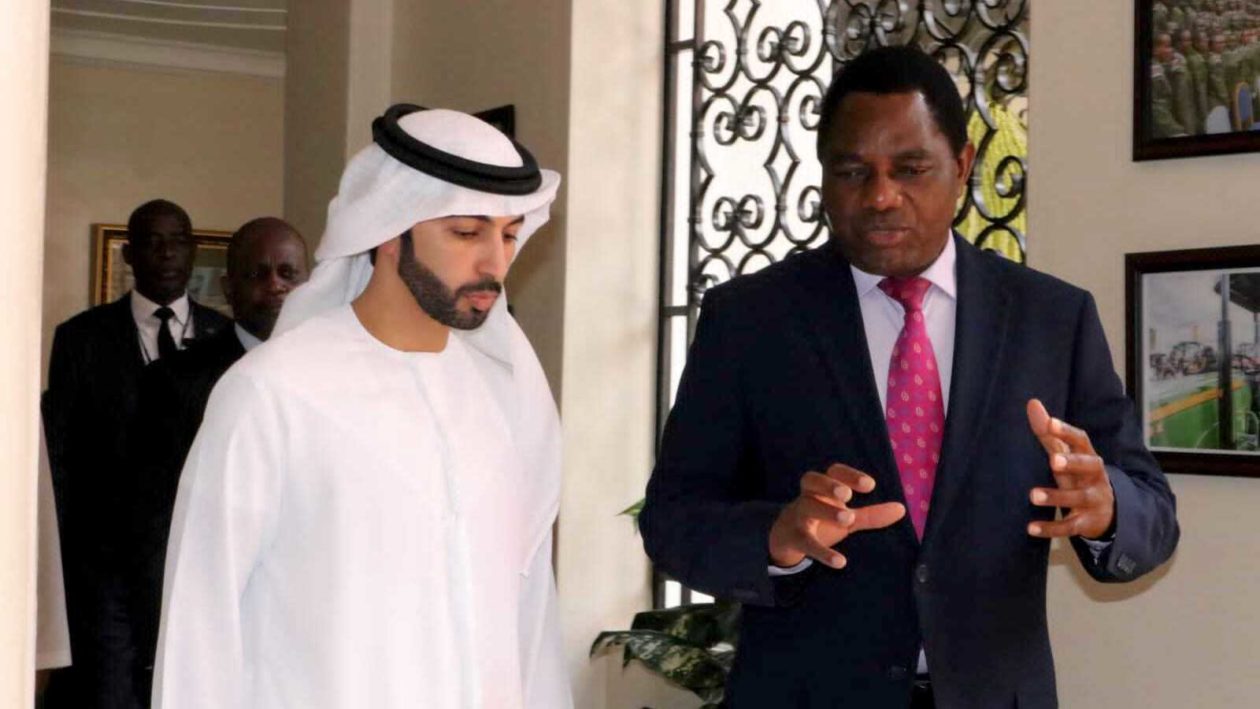
A prominent sheikh in the oil-rich Gulf state hosting this year’s UN climate negotiations, COP28, is heading a new rush to capture and sell carbon credits by managing tens of millions of acres of forests across Africa. Sheikh Ahmed Dalmook Al Maktoum, a member of the royal family of Dubai, which is part of the United Arab Emirates (UAE), wants to sell those credits to rich governments in the Gulf and elsewhere, so they can offset their carbon emissions to help them meet their carbon pledges under the 2015 Paris Agreement.
“There is a scramble for Africa’s forest carbon,” says Saskia Ozinga, co-founder of Fern, a European environmental justice NGO. “But these deals risk defrauding the countries, the forest communities, and the climate, and appear to be negotiated by African governments who don’t understand carbon markets or are personally benefitting from the deals.”
To date however, few African countries have developed forest management projects with demonstrable carbon gains for sale. So, there is excitement in many capitals about a new wave of proposals from foreign carbon entrepreneurs that could fast-track finding revenues for conservation.
The most active of these new companies is Blue Carbon, set up last fall by Sheikh Ahmed, whose other business activities include power plants and trading in the Gulf’s oil and liquefied natural gas. After the launch, he promised: “The core of our work is to enter into bilateral agreements with governments and private entities across the globe so that, together, we can boost investments in [nature-based] carbon projects.”
The concerns of critics are threefold. First, that forest communities will lose control of their forests. Second, that little revenue from carbon-credit sales will reach either African governments or forest communities. And third, that the credits may often undermine action on climate change, by providing bogus carbon offsets — for instance by claiming to protect forests not at risk of being cut down — that would allow foreign governments purchasing the credits to carry on with high emissions.
Those concerns are all the greater because the new ranks of would-be carbon traders are often unknown quantities. Bue Carbon is a privately-owned company with no track record of either forest management or carbon trading.
The four MOUs that Blue Carbon has so far signed in Africa cover a fifth of Zimbabwe (18 million acres), roughly a tenth of Liberia and Zambia (2.5 million acres and 20 million acres respectively), and 8 percent of Tanzania (a further 20 million acres). The company has also approached another well-forested African country, Angola.
A draft final agreement with Liberia, which Yale Environment 360 has seen, says that Blue Carbon alone will have the right to sell carbon credits from the forests included in the 30-year deal. Liberia will not be able to use them to meet any climate pledges of its own. Besides taking various transaction costs, Blue Carbon will initially take 70 percent of the sale price of carbon credits, with 30 percent left for Liberia.